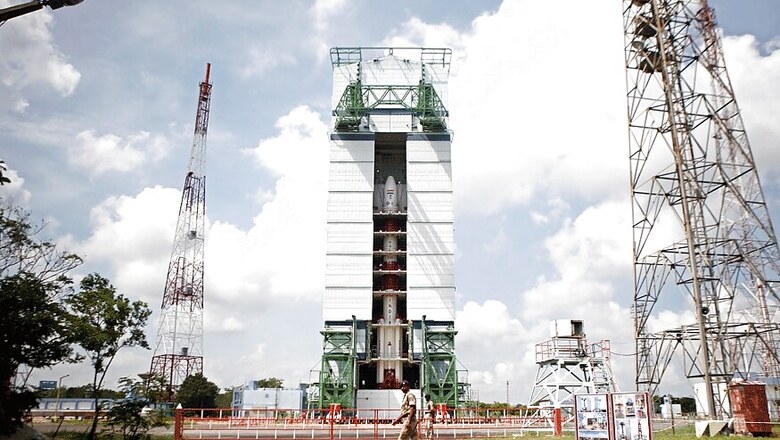
views
Beijing: India's record-breaking launch of 104 satellites should serve as a "wake up call" for China and Chinese firms should cut costs to step up space race with New Delhi, the state-run media said on Monday.
"Over the past few days, some people have keenly followed the debate on whether China has lagged behind India in its space race. India's successful launch of a record-breaking 104 satellites into orbit could serve as a wake-up call for China's commercial space industry and there are a number of lessons for the country to learn," an article in Global Times said.
"Of the 104 satellites, 96 belong to the US, which makes India a fierce competitor in the global market for commercial rocket launch services," the article titled 'China needs to cut commercial space costs to compete with India' said. India's "achievements are largely driven by its low price advantage, a weak point for China's commercial space sector", the article said.
"Competition with India for commercial space launches may be inevitable, and the most urgent action needed for China to expand its market share is to reduce the cost of putting satellites into orbit," it said.
"Although China is developing rapidly into a major player in the space industry, the country's commercial space sector is still in its infancy. Many of the world's satellites are made in or use parts from the US. However, satellites and components made in the US are prohibited from being exported to China, making it very difficult for China to get contracts for commercial satellite launches with other countries," it said.
Another article in the same daily said India has done a better job than China in promoting satellite launch technology which could prompt Beijing to fast-track commercialisation of its rocket launches to vie for the world's small satellite market.
"The launch indicated that India can send commercial satellites into space at lower costs, giving the country's competitiveness in the global race for the burgeoning commercial space businesses," Zhang Yonghe, director with the new technology department of the Shanghai Engineering Centre for Microsatellites, said.
Zhang said he believes that India did a better job promoting its launch services internationally than China, the report said.
Acknowledging that after reaching Mars ahead of China, India stole the march last week by putting 104 satellites into orbit from a single rocket, Zhang said, "China will likely fast-track the commercialisation of its rocket launches to vie for the world's burgeoning small satellite launch market.
"The Wednesday's launch is India's latest triumph for its space programme"," a Global Times report said.
"In 2014, India became the fourth country to successfully send a spacecraft to orbit Mars, signalling a regional rivalry with China which suffered a failure in its Mars mission in 2012," it said.
"Nearly all of its 103 smaller satellites are from other countries including Israel, Kazakhstan, Switzerland and the US," it said.
While praising the record launch as "India's triumph", Sunday's report also said "with respect to the research and development of both military and commercial rocket launch services, India lags behind China, the US and Russia". "India cannot match them yet unless it has enough rockets types to fulfil all satellites launches," it quoted Zhang as saying.
Xue Lijun, general manager assistant of Shenzhen Aerospace Dongfanghong Development Ltd said that India's launch on Wednesday is a breakthrough in terms of numbers, but not in technology.
"Technologically speaking, the launch did not have any big difficulties what [Indian engineers] need to do is to avoid the conflicts among satellites, which involves lots of calculation and data analysis, but is not a tough task," Xue told the daily.
"The 104 satellites are mostly in the same orbit, indicating that India still lacks capabilities of sending multiple satellites into various orbits," the report quoted the "experts" as saying.
















Comments
0 comment